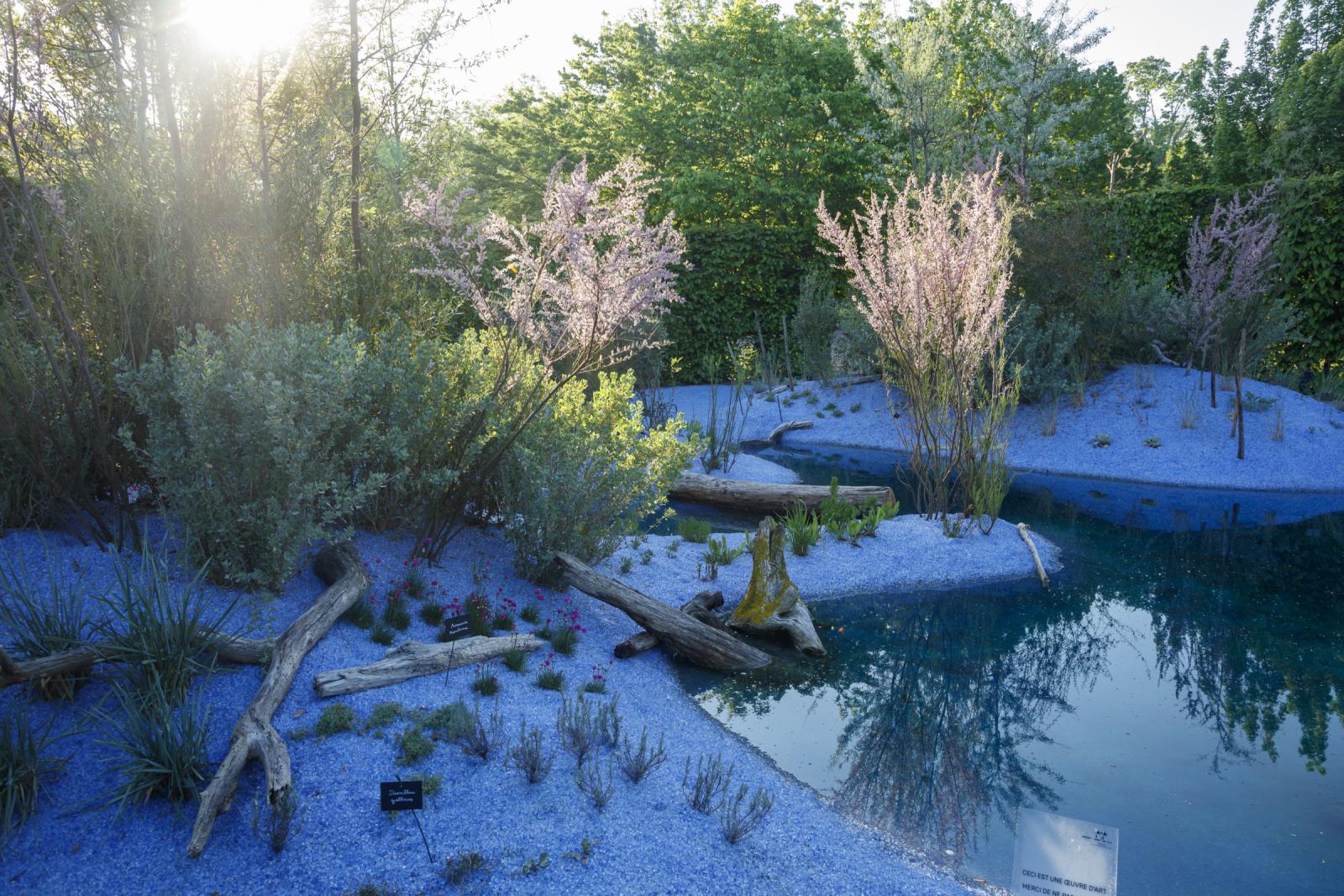
Conversations about the climate crisis are frequently framed through negativity, inhibiting our ability to develop positive visions of the future. Without denying the real problems of today, can we reframe our relationship with the planet to one of opportunity and beauty? Welcome to The Song of Salt, a garden composed entirely of halophytes - plants adapted to extreme levels of salinity. Halophytes can be planted in regions affected by rising sea levels and increasingly saline soils. They create habitats where few other plants can, protect our urban areas from rising waters, and have been a source of human nutrition for thousands of years. They are thus crucial to making coastal and saline landscapes more resilient. This garden, inspired by the coastal landscape of France's Atlantic coast, is an homage to halophytes and our potential future with many more of them!
PHILOSOPHICAL GROUND OF THE GARDEN
- Positive futures : beauty, joy, and playfulness are crucial tools for reframing our relationship to the planetary crisis towards the positive future we can build, not just the future we are losing.
- Resilience bridges : resilience is frequently understood through the building of walls: ecologically, concrete sea walls are used to isolate cities from rising waters in an analogous way that psychological defense mechanisms isolate human beings from each other. Yet, we become stronger not by separating ourselves, but instead by re-engaging with the living world around us through different means. This garden believes in bridges, not walls.
- The garden is political : the garden is not a refuge from the world, but a place to dream up new ones. We believe our gardens should be explicit about the social-ecological crises of our times: we are living in a time of great loss and great opportunity. This is not a dress rehearsal for a future planet or a future life. Now is the time to change.
- Reuse/recycle : consumer culture ravages the planet without actually nourishing us humans. Gardens can be places where we make an intentional effort to consume less, reuse, and recycle. The wood from this garden was gathered from beaches on France's Atlantic coast, and the 12 tonnes of glass are waste products from a French dish manufacturing factory.
ECOLOGICAL GROUND OF THE GARDEN
The plants that compose this garden are inspired by two habitats found along France's Atlantic coast:
- Coastal dune habitat, where we find plants growing in pure sand and highly exposed to winds and salt spray from the ocean.
- Coastal wetland habitat, where the soil has more organic matter than the dunes and whose waters are calmer, with fewer waves.
HALOPHYTES IN ACTION
The ideas in this garden are not just theory! Across the world, people are conspiring with halophytes. Here are a few examples of living, working projects and landscapes with halophytes at their core.
- Seawater Solutions develops coastal land using seawater, creating wetlands that capture carbon, create jobs, produce food, re-wild the environment, clean waterways and stabilize coastlines.
- Lilleau des Niges Natural Reserve, on the French Island of Ré, is a wildlife sanctuary surrounded by a working, productive landscape of salt harvesters, halophyte foragers, and oyster producers. It’s a living example of how we can protect biodiversity and human livelihoods together.
- Mangroves - arguably the most widespread halophytes on the planet - are crucial to protecting coastal lands from rising sea levels. Their existence is at risk due to habitat destruction. Across the world, citizens are working to restore mangrove habitat. Take a look at the Laguna San Ignacio Mangrove restoration project in Baja California, Mexico.
- Hong Kong Wetland Park is one of the few examples of an urban park dedicated to the importance of wetlands for biodiversity, civilisation and conservation.
THE TEAM
Félix de Rosen is a climate activist based in Oakland, California. His work can be found at polycultura.com.
Bruno Derozier is a halophyte expert and landscape designer. He runs the nursery Pépinière La Criste Marine on the island of Ré, France.
Eric Futerfas is an environmental designer based in Berkeley, California. His work can be found at ericfuterfas.com
Contact: felixderosen@gmail.com +1 415-424-2331



